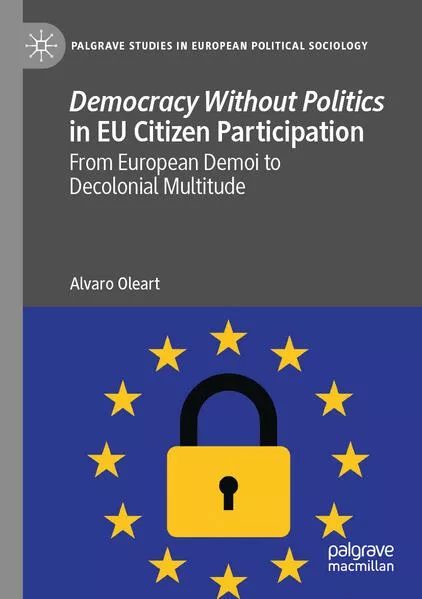
- Publikationen ca: 3
- Fragen & Antworten
Alvaro Oleart
Democracy Without Politics in EU Citizen Participation
How does the dominant understanding(s) of the demo(i)cratic subject in the EU, and of democracy more broadly, shape the EU’s democratic innovations on ‘citizen participation’? What are the politically and normatively preferable alternatives, both in terms of the conceptualisation of the democratic subject in the EU and in the ensuing political practices? The book addresses these questions combining a political theory with a political sociology perspective, contrasting the ‘democracy without politics’ approach of the EU in the context of the Conference on the Future of Europe with that of ongoing transnational activist processes.
Democracy Without Politics in EU Citizen Participation
How does the dominant understanding(s) of the demo(i)cratic subject in the EU, and of democracy more broadly, shape the EU’s democratic innovations on ‘citizen participation’? What are the politically and normatively preferable alternatives, both in terms of the conceptualisation of the democratic subject in the EU and in the ensuing political practices? The book addresses these questions combining a political theory with a political sociology perspective, contrasting the ‘democracy without politics’ approach of the EU in the context of the Conference on the Future of Europe with that of ongoing transnational activist processes.
Democracy Without Politics in EU Citizen Participation
How does the dominant understanding(s) of the demo(i)cratic subject in the EU, and of democracy more broadly, shape the EU’s democratic innovations on ‘citizen participation’? What are the politically and normatively preferable alternatives, both in terms of the conceptualisation of the democratic subject in the EU and in the ensuing political practices? The book addresses these questions combining a political theory with a political sociology perspective, contrasting the ‘democracy without politics’ approach of the EU in the context of the Conference on the Future of Europe with that of ongoing transnational activist processes.


